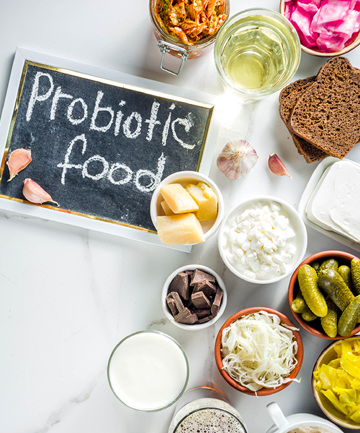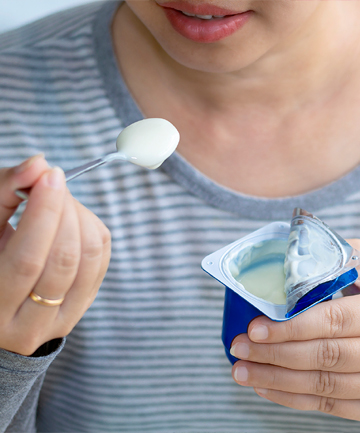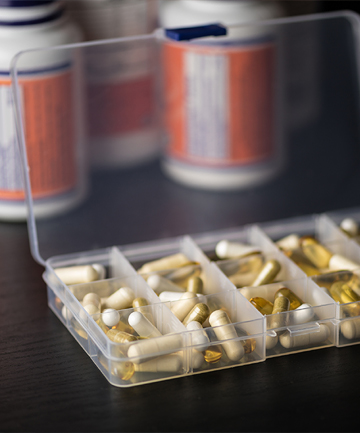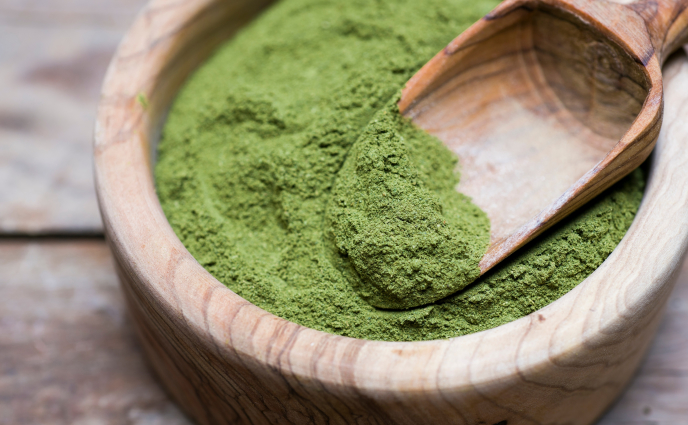"Probiotics are designed to restore the balance between 'good' and 'bad' bacteria," explains holistic health counselor Kerri Axelrod. "Our modern diets of ultra-processed foods and high-stress lifestyles can lead to imbalanced gut bacteria," which is very problematic.
Gastroenterologist Dr. M. Nuri Kalkay goes on to explain that healthy gut bacteria provide very important biological functions for us, including protecting our intestine against the invasion of disease-causing bacteria. "Probiotics also help digest hard-to-digest foods like vegetable fibers and complex carbohydrates like lactose, they produce many vitamins like vitamin K and they stimulate our immune system and regulate our immune reaction thereby preventing allergic autoimmune diseases."
Image via AH86/iStock/Getty Images Plus/Getty
Unfortunately, if you're consuming the standard American diet you're likely not getting enough probiotics, which are found in fermented foods like yogurt, sauerkraut, pickles and kombucha.
But that's not where the story ends: Probiotics need to eat, too — they need prebiotics (a type of fiber) to thrive, meaning that it's equally as important to eat a fiber-rich diet. Good sources of fiber include whole grains, beans, legumes, fruits and vegetables. The goal is 25-35 grams of fiber a day.
Image via Rimma_Bondarenko/iStock/Getty Images Plus/Getty
"Some of the signs you might not be getting enough pre/probiotics in your diet include experiencing gas, bloating, constipation or diarrhea," says Dr. Saman Faramarzi. "Also, gut issues don't always manifest as direct gastrointestinal symptoms, sometimes they show up as headaches, acne and joint pain and if ignored for long enough can turn into chronic illnesses."
Image via pong-photo9/iStock/Getty Images Plus/Getty
While it's important to have a food-first approach, supplements can help. The only drawback? Well, probiotics are sold as dietary supplements, which don't have to go through a rigorous testing or approval process, so the health claims are not guaranteed.
"Some brands label the dosage of probiotics, but it only states the amount 'at time of manufacturing,' not when the consumer purchased or takes it," says Rachel Daniels, MS, RD Sr. and the director of nutrition at Virtual Health Partners. "Probiotics are fragile and to stay alive they need to be at a certain temperature, humidity and level of light. Companies cannot control all of these factors from the time of manufacturing to transport, to the time of sale, so it is difficult to guarantee how many bacteria are alive once you open your container."
Image via emiliozv/iStock/Getty Images Plus/Getty
Another big issue is that most people look for how many many CFUs are in the probiotic bottles they're buying. (CFU stands for colony-forming unit, which refers to the number of live and active micro-organisms that can be found in each serving of the probiotic you're taking.) Most probiotics are mix of multiple strains, but more isn't always better — it's actually the combinations that matter.
"Many of these combinations have never been clinically studied and make unproven claims," says Dr. NavNirat Nibber. "Most formulas are a guess work in compilation of the greatest number of different strains in the highest number per capsule to impress the consumer e.g. 12 strains delivering 20 billion CFU. The reason most companies put in such large numbers is because they have no clinical data that these combinations of strains are compatible, survive or produce any effect. The hope is that by incorporating such high amounts at least some will end up surviving. Some of these combinations have no history of use and these individual strains may be antagonistic to each other and, worse still, may alter the gut flora in an undesirable way. In addition not all probiotics can withstand the harsh stomach environment to reach the large intestines."
Image via PeopleImages/iStock /Getty Images Plus/Getty









